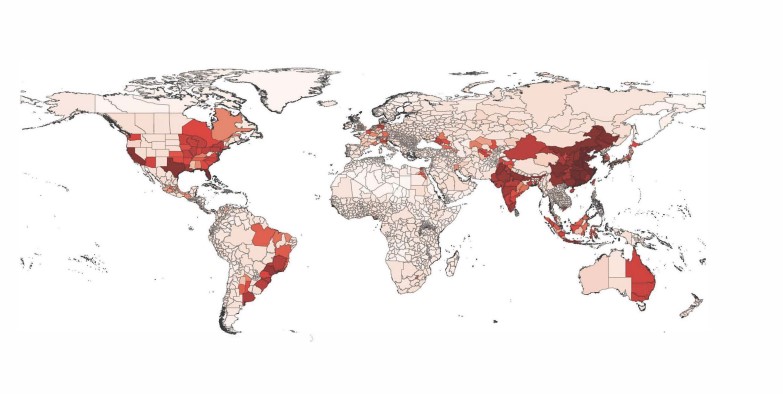Media releases

XDI Hurricane and Tropical Cyclone Analysis
XDI Hurricane and Tropical Cyclone Analysis
New global analysis by XDI has identified regions around the world vulnerable to significant damage from tropical cyclones and hurricanes, as stronger winds fueled by climate change push further towards the poles into areas previously considered low risk.

Hospitals in the eye of the storm: New report exposes risk of hospital shutdowns from extreme weather
Hospitals in the eye of the storm: New report exposes risk of hospital shutdowns from extreme weather
1 in 12 hospitals around the world could face partial or total shutdown from climate change extreme weather events if countries fail to curb fossil fuel emissions, according to a new report released today by XDI (Cross Dependency Analysis) - a global leader in physical climate risk analysis.

XDI restructures to focus on tech delivery and Asia/Europe expansion
XDI restructures to focus on tech delivery and Asia/Europe expansion
CEO Rohan Hamden steps up as Board Director, The Climate Risk Group

XDI Announces Climate Risk Data on 34 million UK Addresses to Support Mortgage Lenders
XDI Announces Climate Risk Data on 34 million UK Addresses to Support Mortgage Lenders
International climate change risk analysts XDI – The Cross Dependency Initiative – today released extreme weather and climate change physical risk statistics for all 34 million commercial and residential addresses in the UK. The report presents physical climate risk statistics including the geographical concentration of high-risk properties and the projected increases in insurance costs for 406 counties and equivalent areas.

XDI releases world-first comparison of every state’s physical climate risk
XDI releases world-first comparison of every state’s physical climate risk
The engine rooms of the global economy are among states and provinces most at risk from climate change and extreme weather according to a new ranking of the physical climate risk of every state, province and territory in the world released today by XDI (The Cross Dependency Initiative) – a world leader in physical climate risk analysis.

Ready or not: Mandatory disclosure is coming to Australia
Ready or not: Mandatory disclosure is coming to Australia
Australia is in the process of catching up to New Zealand, Europe and the United States in adopting a mandatory disclosure regime for climate change risk.
From simple, low cost analysis, to complex, detailed and specific,
XDI delivers actionable results
Our vision is not just to identify physical climate risks, but to mitigate them.
XDI can help you develop business plans for adaptation, helping you move from risk to resilience.
Talk to us today to find out more.



